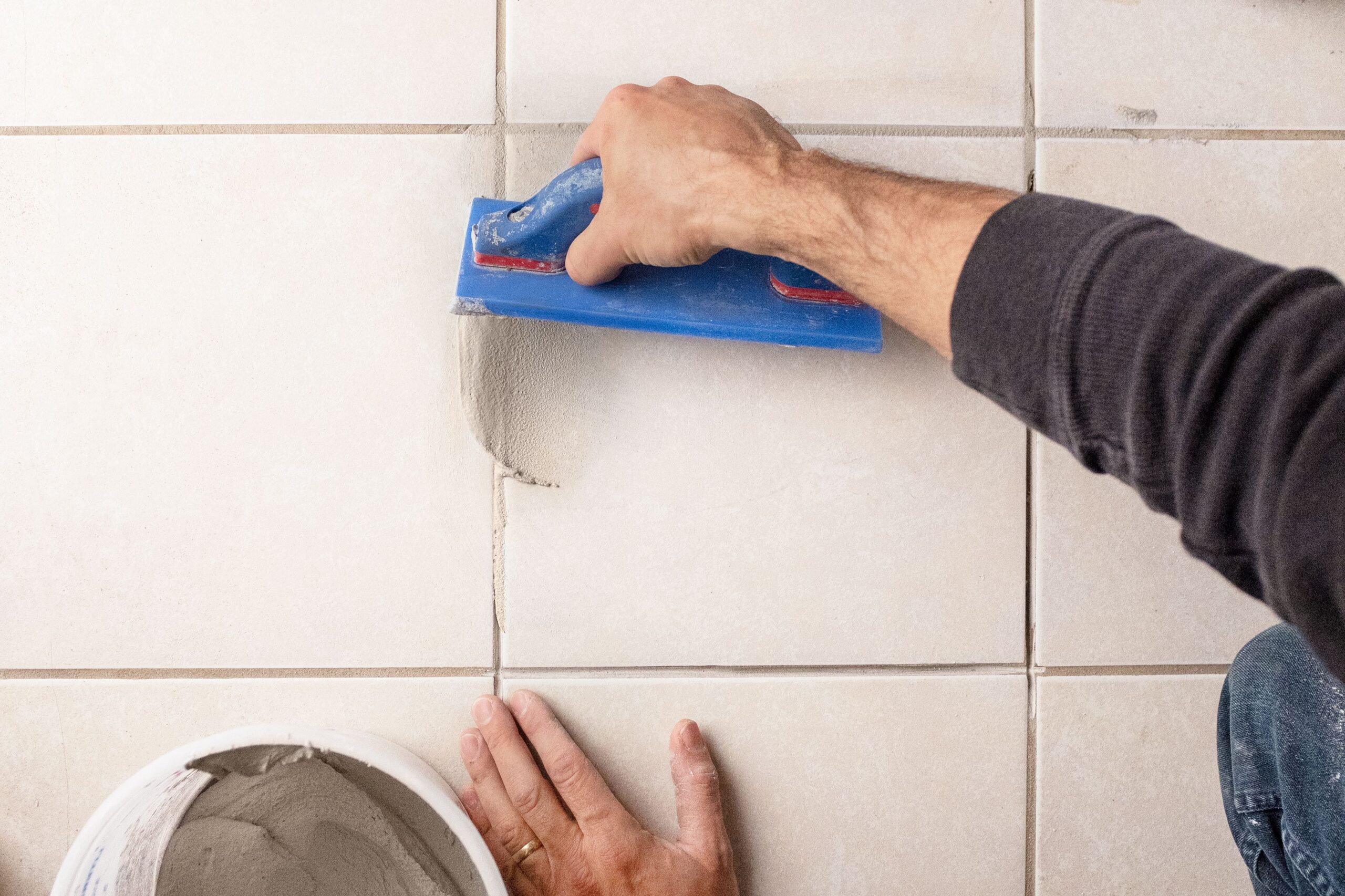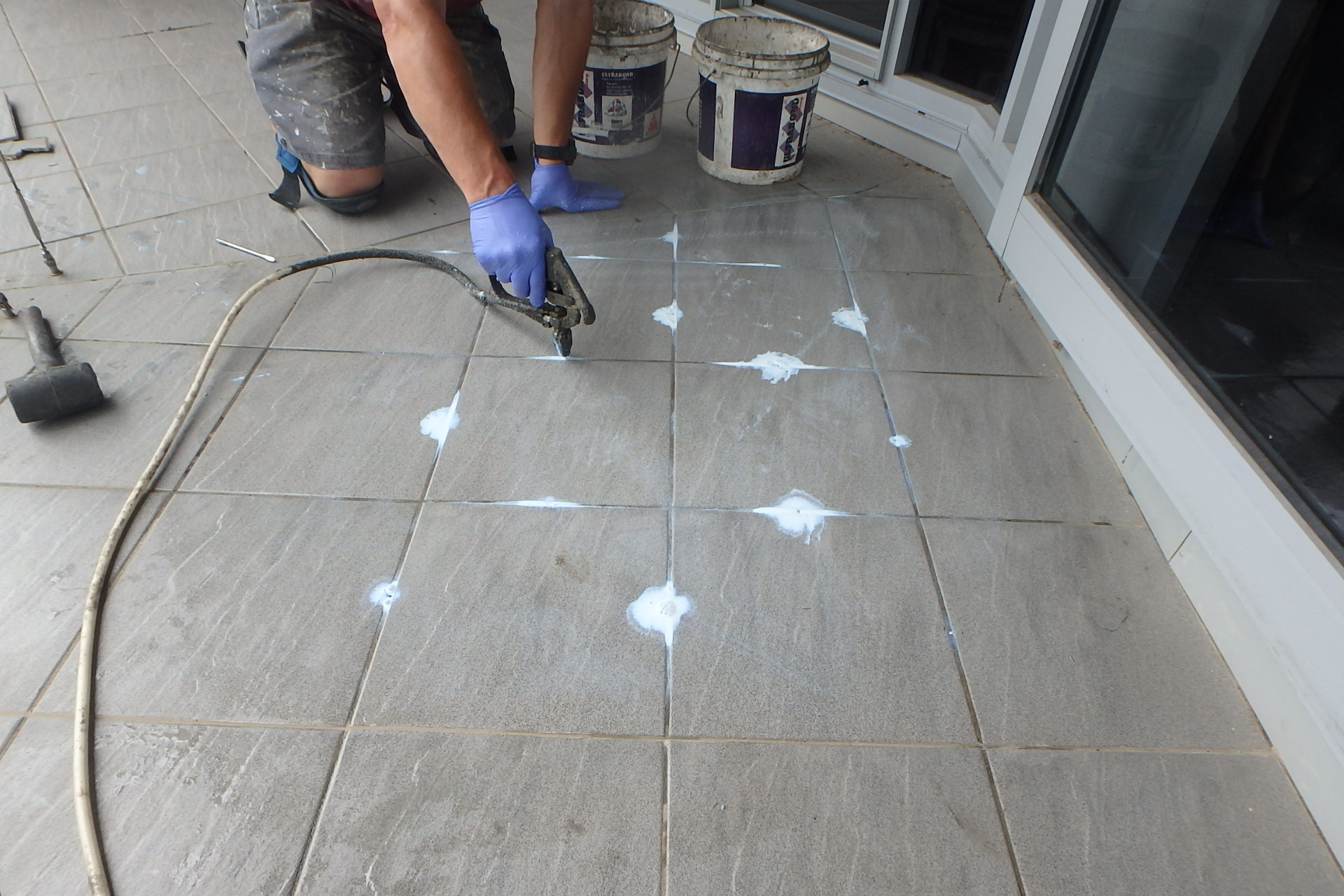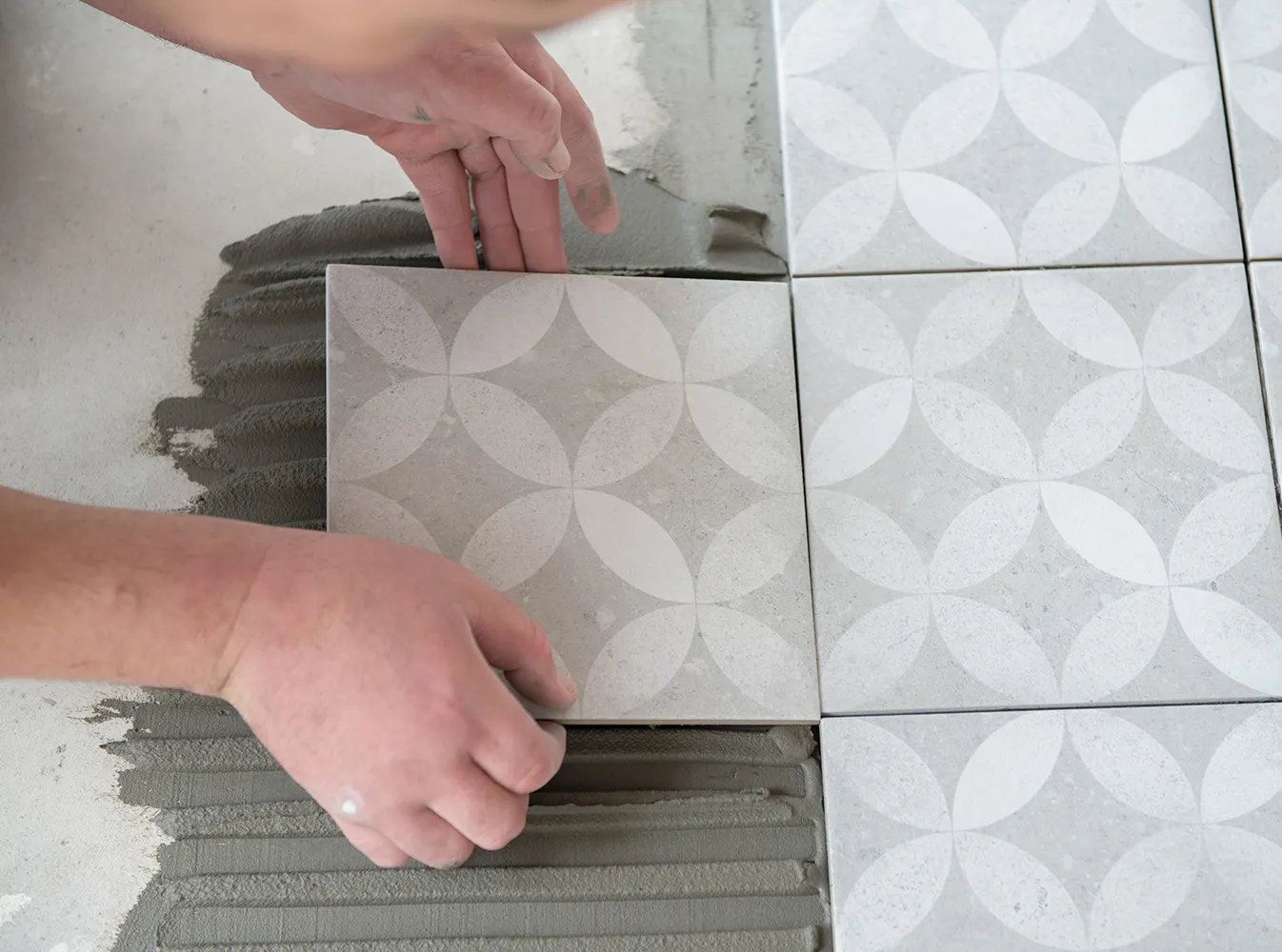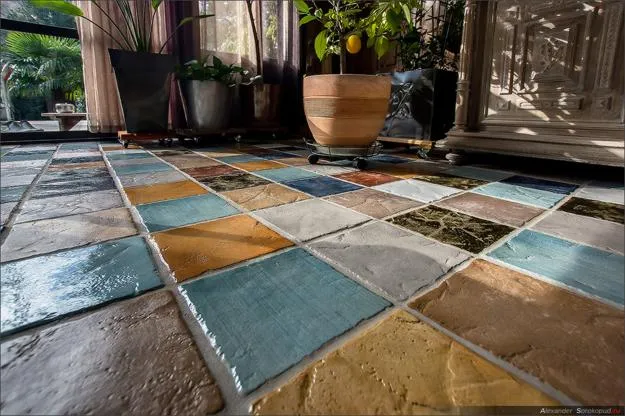If your tiles sound hollow and they respond to your touches by moving it’s likely you have a drummy tiles, either the adhesive under the tiles is not bonded properly or letting go. The carelessness during the installation process and using the floor right after the application can cause the larger area to de-bond. In contrast, if it’s happening on its own, the affected area would be relatively small.
The most common cause of having a drummy tile is water and structural damage, among the various reasons. Dampness in the walls and exposure to extremely wet weather are the culprits in multiple cases.
Ways to Fix Drummy Tiles
Re-grout the Tiles

One of the simplest methods is to re-grout the tiles. Remove the old grout, clean the tiles, and re-apply the new grout. This will hold the tile in its place.
If the area is larger, then it’s better to remove the tiles, clean the surface, and re-apply the fixing agent to bond the tiles.
Inject Epoxy

You can also inject epoxy under the tile by drilling a hole in the tile, doing this will fix the hollowness under the tile and will bond the tiles back to the surface. This method can be used if the area you need to fix is large or the removal of tiles and re-application of grout has the potential to damage the tiles.
Replace the Tiles

If the tiles are damaged beyond repair, you can go ahead and replace the old tiles with the new ones.
Also Read 07 Hamptons Style Bedroom Ideas
What Can Cause Drummy Tiles?
Various reasons can cause it: there can be a structural issue with your property, poor workmanship, there can be an issue of poorly fitted tiles, or early usage of newly tiled surfaces.
Poorly Fitted Tiles

It may seem easy to install tiles after looking up some DIY videos and instructions online, but it needs a high level of expertise to install tiles. Here are some malpractices you need to look out for to avoid drummy tiles.
- The quality and type of bond can affect it in the long run.
- If the quantity of fixative material is less than required, there can be voids under the tiles, causing a weakened bond and hollowness.
- If the application of tiles is delayed after the application of bond and fixative material it can cause the bonding agent to lose its strength required to bond.
- The preparation of the substrate layer is ignored. It should be appropriately cleaned and left to cure for however long it is required.
- The size of the grout joints used is not compatible, and it can affect the movement (Expansion and contraction) of tiles.
- The application of joint profiles is not correct, which can weaken the strength of the installed tiles and fixative material during expansion or contraction.
Structural Reasons
/
Sometimes, the culprit can be the old tiles and the structure of your home.
- Moisture Exposure– Wet weather conditions, leaks, flooding, and dampness in the walls can be the reason your tiles are de-bonded over time.
- Using the newly fitted floor too early– Walking on the freshly done tiles can cause the bonds to leave their place due to the pressure and leave a void which will cause a drummy tile over time.
- Tile manufacturing faults>- If there are minor imperfections in the edging of the tiles, they will not fit perfectly and de-bond earlier than expected, resulting in a drummy tile.
- Tiles over tiles- If you are laying new tiles over the old tiled surface, then the area that has drummy or loosened tiles in the past will carry forward to issue to the new tiled surface at the same place.
- Cleaning Methods- Using harsh chemicals to clean the floor can cause the grout to come loose and de-bond the tiles. Using high water pressure is also the reason for it.
Conclusion
The best way to avoid it is to follow the tips mentioned above: keep the place dry and clean, do not use harsh chemicals to use the tiled surface, keep it dry, and do not let it stay wet for longer. Also, during the installation, try to use high-quality grout and adhesive to prolong the bond and tiles’ life. Also, check the quality of the tiles; there shouldn’t be broken or unfinished edges.








